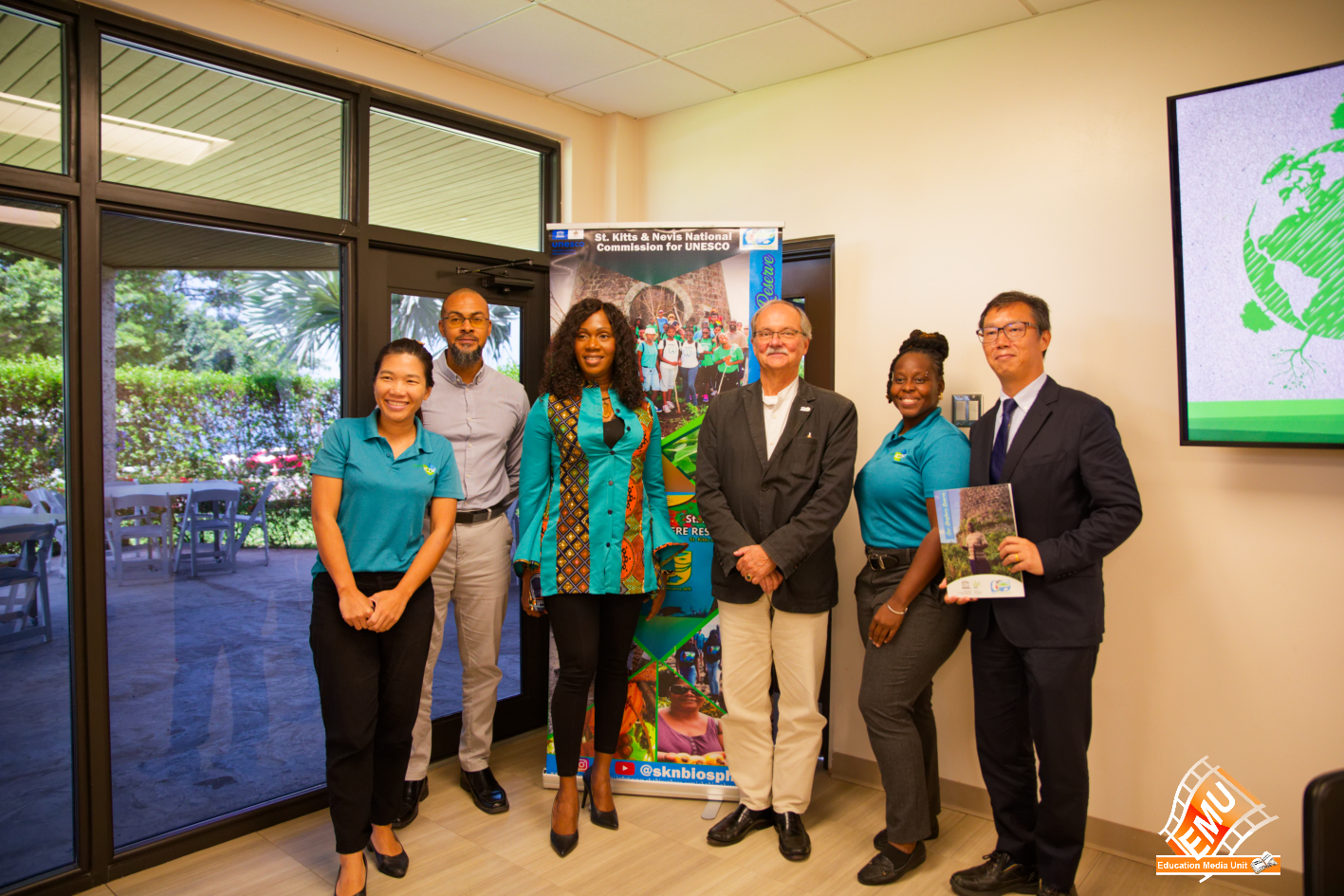Stakeholder Workshop on the Impact of the Single-Use Plastic Ban on the St. Mary’s Biosphere Reserve.
Paragraph 1: Setting the Stage for a Plastic-Free Future in St. Kitts and Nevis
The idyllic Caribbean island nation of St. Kitts and Nevis, home to the breathtaking St. Mary’s Biosphere Reserve, a UNESCO World Heritage Site, is embarking on an ambitious journey towards a plastic-free future. On September 10, 2025, a pivotal workshop, “Towards a Zero Plastic St. Mary’s Biosphere Reserve,” convened at Windsor University, bringing together a diverse group of stakeholders. Organized by the St. Kitts and Nevis National Commission for UNESCO, in collaboration with the Ministry of Sustainable Development, Environment and Climate Action and Constituency Empowerment, the workshop aimed to address the pressing issue of plastic pollution and strategize effective implementation of the nation’s 2025 Plastic Waste Reduction Bill. The gathering underscored the urgency of combating plastic waste and its impact on the precious biodiversity of the St. Mary’s Biosphere Reserve, a testament to the nation’s commitment to environmental preservation.
Paragraph 2: Collaboration and Commitment: A Shared Vision for Sustainability
The workshop opened with powerful addresses emphasizing the importance of collaborative action. H.E. Nerys Dockery, Secretary General of the St. Kitts and Nevis National Commission for UNESCO, highlighted the global challenge of plastic pollution and the significance of the St. Mary’s Biosphere Reserve as a symbol of the nation’s dedication to environmental stewardship. She called for innovative solutions and a comprehensive roadmap towards achieving a plastic-free biosphere reserve. Mrs. Sharon Rattan, representing the Minister of Sustainable Development, Dr. Joyelle Clarke, further reiterated the government’s commitment to sustainability and resilience building, underscoring the workshop’s focus on the phased single-use plastic ban as a crucial step in this direction.
Paragraph 3: Learning from Global Best Practices: The Principe Island Model
A key element of the workshop involved sharing best practices and learning from successful initiatives elsewhere. Mrs. Telca Daniel Wallace, Coordinator of the National Man and the Biosphere (MAB) Committee, set the stage by outlining the vision and mission of the St. Mary’s Biosphere Reserve and detailing the detrimental effects of plastic pollution on this sensitive ecosystem. Prof. Miguel Clüsener-Godt, a UNESCO expert, then presented the inspiring case study of Principe Island Biosphere Reserve, which successfully transitioned to a plastic-free zone. He emphasized the importance of an inclusive, impact-oriented approach that garnered the full support of the island’s residents, a model St. Kitts and Nevis could learn from.
Paragraph 4: Addressing Challenges and Shaping Strategies for a Plastic-Free Future
The workshop fostered a crucial dialogue on the challenges and opportunities presented by the 2025 Plastic Waste Reduction Bill. Representatives from various government agencies, including the Ministry of Environment, the Taiwan Technical Mission, the St. Kitts and Nevis Customs Excise Department, and the Ministry of Tourism, Nevis, shared their experiences and insights regarding the implementation of the phased single-use plastic ban. This collaborative discussion aimed to identify potential roadblocks and formulate practical strategies for achieving a zero-plastic biosphere reserve, extending the impact beyond the reserve itself to encompass the entire nation.
Paragraph 5: Local Voices: Community Engagement and Empowering Change
Crucially, the workshop prioritized the voices of those most directly impacted by the plastic ban. Residents, community activists, and entrepreneurs from within the St. Mary’s Biosphere Reserve shared their firsthand experiences, offering valuable perspectives on the human impact of the ban. This participatory approach facilitated the identification of areas needing improvement in terms of inclusivity, incentivization, and public awareness campaigns. By actively involving local communities, the workshop ensured that the transition to a plastic-free future is both equitable and sustainable.
Paragraph 6: Charting the Course Forward: Collaborative Action for a Sustainable Future
The “Towards a Zero Plastic St. Mary’s Biosphere Reserve” workshop culminated in a series of concrete recommendations for fostering a culture of sustainability in St. Kitts and Nevis. Emphasis was placed on developing effective public awareness campaigns to increase public buy-in and compliance with the plastic ban. The workshop underscored the importance of ongoing collaboration between government agencies, local communities, and international partners in achieving a plastic-free future. The St. Kitts and Nevis National Commission for UNESCO and the Ministry of Sustainable Development reaffirmed their commitment to working together to ensure the long-term sustainability of the St. Mary’s Biosphere Reserve and the well-being of its communities, marking a significant step towards a cleaner, greener future for the island nation.
Share this content:












Post Comment